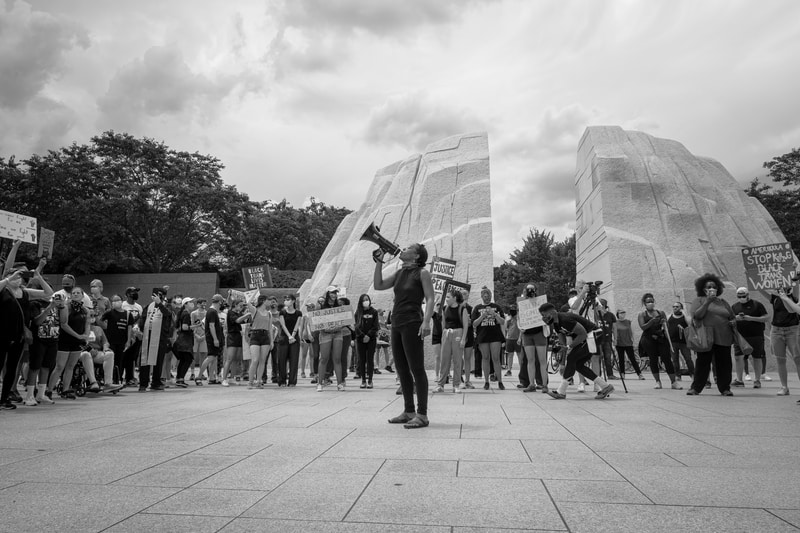Spotlight on Student Loans:
Fighting injustice in all its forms: student debt is a civil rights issue
“Our lives begin to end the day we become silent about things that matter.”*
A couple of weeks ago I was in Brooklyn Center, Minnesota (a little ways from my home in St. Paul) as part of a protest organized to speak out after the police killing of Daunte Wright. Three of my grandsons were with me, one in a stroller, the older boys wearing “Stop Killing Black People” sweatshirts (so proud of them!). Between the peacefully chanting crowd, people grilling and handing out water, the police barricades and snipers on the roofs, it was quite the scene. I’ve been organizing, attending, and supporting protests for much of my life; much of the time I feel like we’ve come a long way, that weekend I could really see just how far we really have to go.
“Injustice anywhere is a threat to justice everywhere.”*
I read a pretty staggering report that described some of the local background. Brooklyn Center is the most racially diverse city in Minnesota, but almost 90% of its police force is white and doesn’t live there, typically living in neighboring suburbs where the demographics are significantly wealthier and whiter. It got me thinking about the depth of economic and community elements baked into socialized, institutionalized racism.
So where do we go from here? How do we move forward? After the Montgomery bus boycotts, Martin Luther King Jr. wrote that “He who passively accepts evil is as much involved in it as he who helps to perpetrate it. He who accepts evil without protesting against it is really cooperating with it.” In short: we have work to do.
“Life’s most persistent and urgent question is, ‘What are you doing for others?’”*
At Navigate, we are working to bring our expertise to bear on the injustices of student debt. Earlier this year, the Student Borrower Protection Center wrote powerfully about the ways in which the student debt crisis is a civil rights crisis: “The reality for Black and Latino borrowers who bear the brunt of this debt load and its consequences is even more stark, making student loan debt a key barrier to racial equity.” We have work to do.
The past year and a half have been very hard. This pandemic has pulled our institutions every which way, revealing the seams. It’s also pushed a number of societal, racial injustices further into the spotlight as well: health care, student debt, and on and on. We all have work to do, we all have a part to play: “The time is always right to do what is right.”*
*Quotes from the Rev. Dr. Martin Luther King Jr.

